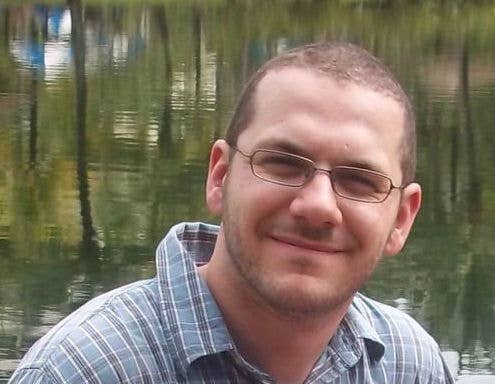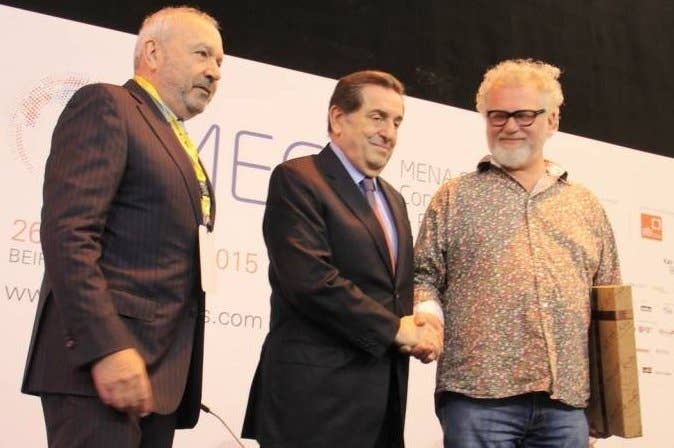MENA: "Everybody leaves. We need people to come back"
The MENA region's developers have always moved abroad to find success. What will it take to build a more stable future?
The defining moment of the inaugural MEGA Games Conference arrived early, at the very start of its opening day. Mr Boutros Harb, the Lebanese Minister for Telecommunications, proclaimed that, "words are no longer enough," in the race to become the leading country for game development in the Middle East and North Africa. The MENA region is united by a strong cultural bond, but otherwise its constituent countries can be strikingly different in many crucial ways: politically, economically, socially, and beyond. Lebanon, he said, had a chance to lead the way in proving that MENA can be a producer, and not just a consumer, of games.
"In Syria, because of the war, there is incredible brain drain right across the country"
Fadhi Mujahid, Game Power 7
Some MEGA Games conference attendees were sceptical, as anyone might be of a politician giving an impassioned decree without yet having delivered the necessary action to back his claims. Others saw it as a milestone, the first real sign that the Lebanese government recognised the worth of its nascent development community. Everyone agreed on one thing, however, including Harb himself: talent was the key issue, both nurturing it and then giving it a reason to remain in the country.
"Games are being produced abroad," Harb said. "My intention is to create the proper ecosystem in Lebanon, which will not only encourage the young geniuses to stay, but also provide them with the needed tools to explore their ideas and products while still based in Lebanon."
A particularly telling moment arrived later in the same day. A speaker canvassed the crowd, asking those present to raise their hand according to the field in which they worked. Marketing was very well represented, as was monetisation, but development and production accounted for a tiny fraction of the audience. Lebanon - and the MENA region in general - has the skills to import, optimise and sell, but actually making games is another matter. Right now, it is more a market than an industry.

Falafel Games - a contributor to the previous article in this series - is a prime example. Despite being founded with a mission to become the leading developer of online games for the Middle East, the company is actually based in Hangzhou, China. Vince Ghossoub, the co-founder and CEO, tells me that this is as much by circumstance as by design - he was living in China when he decided to start the business - but the advantage of that location was also impossible to ignore. The production talent necessary to build an online game company (not to mention the VC money to fund its early years) is available in China, to a degree that would be unthinkable in practically all of the MENA region's constituent countries.
Fadhi Mujahid, the founder of Game Power 7, one of the first game companies in the entire MENA region, recalls a time when even support and administrative staff were impossible to find. Game Power 7 was importing and "culturalising" games for the regional audience as far back as 2007. At that time, developers, designers and artists were less important than, say, community managers, but the talent pool simply didn't exist. Mujahid says that Game Power trained the first community managers in the entire MENA region, simply so that someone could fill the necessary roles. It is a tradition that continues at the company to this very day.
"Not all of our leaders are here. There are a lot of people like this. Everybody leaves"
Joseph Shomali, Play 3arabi
"It's part of our contribution to the community," he says. "We train young people, aged 18 to 25, in managing the community, how to monetise. But that's in a country like Syria. Without that, we wouldn't be able to operate our games at all.
"The situation now in Syria, because of the war, there is incredible brain drain right across the country. At Gamer Power 7 we're suffering from that."
This one-two punch of a limited talent pool and chronic brain drain is merely intensified in those MENA countries experiencing social and political upheaval. It exists in to some degree every country, its impact felt by every developer, and particularly those who want to create a sustainable base on which future generations can build. This is the goal of Play 3arabi, an online publisher and developer based in Jordan. The company's three founders - Samer Abbas, Jospeh Shomali and Ahmed Alsafar - have all worked at or collaborated with companies outside the region at some point in their careers, and they are now interested in building an industry that will offer ambitious people more persuasive reasons to stay.

"Not all of our leaders are here," Shomali says. "And the thing is, we left. There are a lot of people like this. Everybody leaves."
There is a clear upside to that choice. Abbas is quick to venerate the "world-class experience" a developer can gain from working at an international company, and that experience will be necessary if MENA countries are to make progress in the global games industry. The problem now is that, while everybody leaves, not everybody chooses to return.
"It's not about realising the importance of staying," Shomali continues. "I stayed for a long time, and once I left I learned different things, new things, more professional things. We need people to come back. We came back, and we now want to help the people here. They might go out and then come back. Or they might slowly build their own community."
The will to build those communities is abundant, but the expertise to make that work on a commercial level is in short supply. In Syria, for example, the fundamental technical skills involved in making games are widely taught at universities, but generally in the context of less creative fields like network security or software development. Indeed, even the books that could allow an aspiring developer to teach themselves aren't generally printed in Arabic, so learning game design, for example, often means learning an entire language before any progress can be made.
”I stayed for a long time, and once I left I learned different things, new things, more professional things"
Joseph Shomali, Play 3arabi
"It's a major problem," Game Power 7's Mujahid admits. "There's nothing in universities about game development, nothing in the private sector. Anyone that's working in development is a self-taught pioneer. Are we doing anything to cultivate talent? No, not at all, and the situation is not improving."
Play 3arabi's Shomali observes similar issues elsewhere in the region, and even in a country like Lebanon, where the educational institutions are relatively progressive. A developer looking for talent in Beirut - widely seen as the most obvious candidate for a startup hub in the MENA region - will probably find just enough artists and engineers, but very few who understand how to combine the two in the form of a game, and fewer still who can turn that into a sustainable business.
"We don't have the business part, we don't have the product part, we don't have the production part," he says. "That's actually missing, but we can help with this."
Reine Abbas has examined this issue from every angle, as both the co-founder of the Lebanese indie developer Wixel Studios, and a university lecturer with 12 years experience. Right now, she says, countries in the MENA region will fail to establish local industries without the will to do so alone, as entrepreneurs - just as she did with her Wixel Studios co-founder, Ziad Feghali. However, even Lebanese students are primarily interested in specialism, with the ultimate goal of finding stable employment in a large company. In itself, that instinct is completely understandable, but it simply isn't compatible with what a Lebanese games industry must necessarily look like at this point in time.

"Whenever I do orientation I always ask who's worked on their own products. But nobody does that, even in university," she says. "That's a difference between our culture and your culture. We don't have garage developers, working alone. He or she is waiting for the school, the university. And when they finish university they want to work at a company, where they do what they're told."
An an attempt to provide a solution, Abbas runs extra-curricular programmes on game design and related subjects for kids interested in pursuing a career in the industry. The response has been encouraging to say the least, despite the classes being held outside of regular school hours. "The kids here want to be game designers, but they don't know how to do it or even where to start," she says. "They are addicted to the programme from the first second. Their parents tell me that they can't wait until the next weekend."
"That's a difference between our culture and your culture. We don't have garage developers, working alone"
Reine Abbas, Wixel Studios
And that sustained enthusiasm is generally a surprise to parents, who Abbas sees as the primary reason that careers in game development are not facilitated by educational institutions. She regards games as a focal point for a host of valuable skills and disciplines, from art to to physics to mathematics to computer science, but the older generations in even the most progressive MENA countries tend to dismiss the medium as a distraction.
"For me, if you finish one full game and you learn all those skills then you can do whatever you want, even in other fields. The parents are the problem. We have to convince them. That's the biggest challenge.
"We have a really small number of kids now, with just three programmes, but already things are changing. Imagine if we had three academies, or four or five: in Lebanon, in Dubai, in Abu Dhabi. It would change this generation. We would be making creators."

